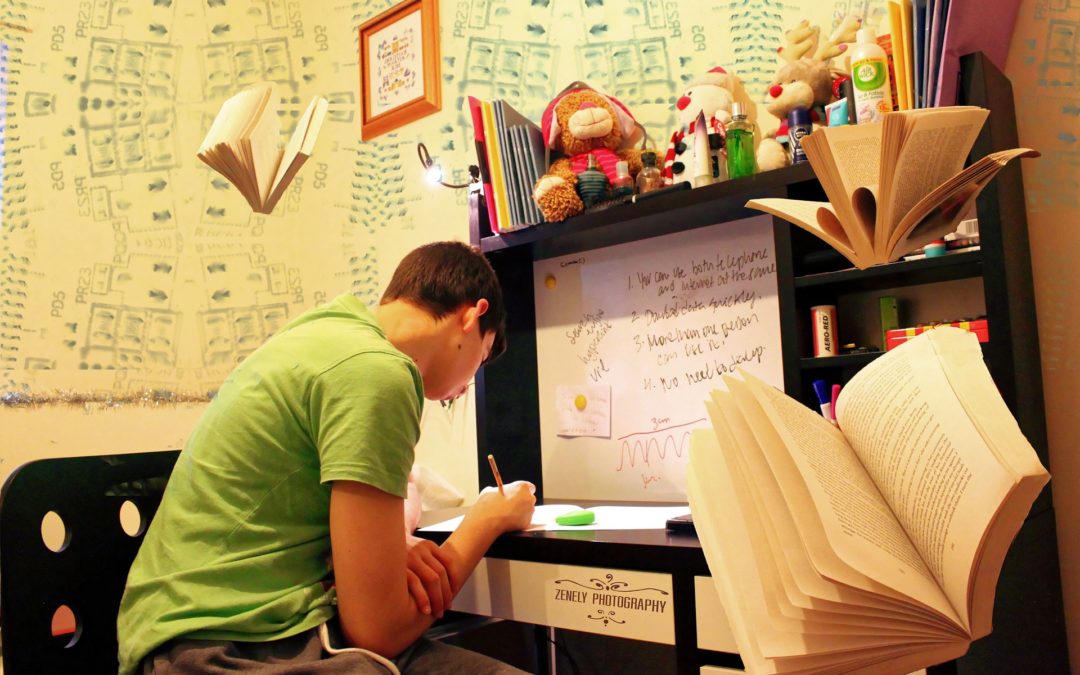When Michigan’s schools were let out last March due to the Covid-19 pandemic it was hard to imagine that most schools would still be shut down for in-person learning nearly a year later–and there is no guarantee students will return to school as the calendar flips to 2021.
It’s this uncertainty about the future and the stress of online learning and social isolation that is causing anxiety for a lot of students, particularly teenagers.
“There are a lot of unknowns which creates a lot of anxiety in kids.This anxiety can be manifested as defiant behavior and disengaging from school and life in general.” says John Coleman, a licensed professional counselor who currently has a private practice and has worked as a crisis counselor in community mental health and as a counselor and consultant in schools in central Michigan.
Coleman added that kids are probably grieving from not being able to go to school, be with friends and engage in normal routines. He says the first step for parents dealing with a teenager who may be angry or checking out is to be empathetic.
“This is a hard thing and it is okay to be angry or sad, but we will eventually be on the other side of this and have a life that looks like what we had before,” is the message Coleman believes should be related to any child feeling anxious about the current situation we’re in.
Here are a few additonal tips Coleman suggests that will help your child cope with Covid and maybe even get up off the couch and get their homework done!
- Talk to your teen
Help your teen deal with their emotions by letting them express their feelings of loss, sadness or anger.
- Make the best of the situation
“Sometimes things happen for a reason,” says Coleman. “What can be gleaned from going through this period of our lives?” Can it be finding new things to do? Slowing down? He says kids may have had sports for an outlet so this might be the time to explore new interests.
“Model flexibility and a growth mindset” he says. For instance, he says students should try to do well in school and stay in shape for when they do return.
- Disconnect from technology
Reading, writing and conversations with family are all good ways to get away from the computer screen (which many students are reporting are causing headaches) and give your eyes a rest.
- Engage in physical activities
The winter season makes it a little harder to get outside but you can still bundle up and go for a walk, jog or snowshoe. This could be a good time for parents to connect with their teen in a positive way. In addition, most homes have some type of exercise equipment around that perhaps was gathering dust, like 5 pound dumbells, a jump rope or exercise bike.
- Be mindful
Coleman says this doesn’t need to be formal meditation but rather spending some alone time in nature or listening to music. This could be a good escape for teens living in cramped quarters with siblings.
- Take talk of suicide seriously
Coleman says incidences of suicide for teens and adult were on the rise pre-Covid. Listen to your young adult and take any talk of self-harm or suicide seriously. Contact your appropriate health care provider if you have any of these concerns.
Here are a few more simple suggestions to cope with the situation.
- Turn off the tube. At least limit the amount of Covid coverage on TV which can invoke feelings of fear and anxiety.
- Be positive. There is a vaccine on the way!
- Have a designated movie night with popcorn and pop.
- Look at old pictures when your kids were engaging in sports, band or 4-H.
- Remember board games? Get out the Yahtzee, Uno or some of the new games on the market.
- Have a goal setting night. Your teen might be having a hard time seeing past the current situation we’re in. Setting goals for themselves (e.g., getting a job, joining a club, having senior pictures taken and playing sports) or for the family (e.g., family vacation, touring colleges of interest) are ways to help teens look past the pandemic.
“We’re all in this together,” states Coleman. “Everybody’s life has been impacted. We all deserve grace during this time because it is difficult, we all deserve more grace then we give ourselves and allow grace to others who are trying to keep us safe. This is only one year and most of us have many years ahead of us.”
Neil Moran is a high school substitute teacher with a degree in psychology and counseling.

